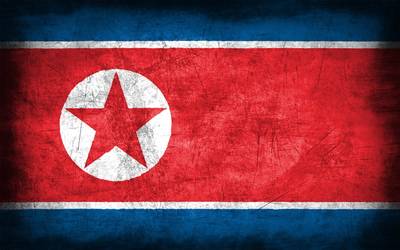(Reuters) -- The U.N. Security Council on Friday unanimously imposed new sanctions on North Korea following its latest intercontinental ballistic missile test, a move that analysts said could have a significant impact on the isolated country's struggling economy.
The resolution seeks to ban nearly 90 percent of refined petroleum product exports to North Korea by capping them at 500,000 barrels a year and demands the repatriation of North Koreans working abroad within 12 months.
The U.S.-drafted resolution would also cap
crude oil supplies to North Korea at 4 million barrels a year. The United States has been calling on China to limit its oil supply to its neighbor and ally.
The resolution passed by a vote of 15 to 0, said Japan's ambassador to the United Nations. Japan holds the presidency of the Security Council this month.
North Korea on Nov. 29 said it successfully tested a new intercontinental ballistic missile in a "breakthrough" that puts the U.S. mainland within range of its nuclear weapons whose warheads could withstand re-entry to the Earth's atmosphere.
Tensions have been rising over North Korea's nuclear and missile programs, which it pursues in defiance of years of U.N. Security Council resolutions, with bellicose rhetoric coming from both Pyongyang and the White House.
In November, North Korea called for a halt to what it called “brutal sanctions,” saying a previous round imposed after its sixth and most powerful nuclear test on Sept. 3 constituted genocide.
U.S. diplomats have made clear they are seeking a diplomatic solution but have proposed new, tougher sanctions to ratchet up pressure on North Korean
leader Kim Jong Un.
North Korea regularly threatens to destroy South Korea, the United States and Japan, and says its weapons programm are necessary to counter U.S. aggression. The United States stations 28,500 troops in the South, a legacy of the 1950-53 Korean War.
On Friday, a spokesperson for North Korea's foreign ministry called U.S.
President Donald Trump's recently released national security strategy the latest American policy seeking to "stifle our country and turn the entire Korean peninsula" into an outpost of American hegemony.
He said Trump was seeking "total subordination of the whole world".
INCREASING PRESSURE
Speaking before the Security Council vote, analysts said the new sanctions could have a major effect on the North's economy.
"If they were enforced, the cap on oil would be devastating for North Korea's haulage industry, for North Koreans who use generators at home or for productive activities, and for (state-owned enterprises) that do the same," said Peter Ward, a columnist for NK News, a website that tracks North Korea.
The forced repatriation of foreign workers would also cut off vital sources of foreign currency and investment not only for the government but also for North Korea's emerging market economy, he said.
"If such sanctions were enforced, they would thus impede and endanger North Korea's economic development."
Asked about the effects of sanctions before these latest proposals were announced, Michael Kirby, who led a U.N. inquiry into human rights abuses in North Korea, said cutting off fuel imports would be "a very serious step".
"Cutting off oil, petroleum supplies, would obviously have a very big impact on the ordinary population," he said.
China, which supplies most of North Korea's oil, has backed successive rounds of U.N. sanctions but had resisted past U.S. calls to cut off supplies to its neighbour.
(Additional reporting by Christian Shepherd in Beijing; Writing by Josh Smith and Arshad Mohammed; Editing by Nick Macfie and James Dalgleish)

